Medieval Craftsmanship & Georgian Elegance in an English Townhouse
Tucked within Ipswich’s historic Central Conservation Area, this remarkable Grade II-listed townhouse offers a captivating glimpse into the past. Thought to have been built in the mid-15th century, the six-bedroom home is a striking blend of medieval and Georgian architecture.
Exposed oak posts, beams, and mullioned windows with ogee mouldings sit alongside elegant tuckpointed red brick, stucco flourishes, and original crown glass sash windows. Together, these elements create a richly layered home that stands proudly among the distinguished historic buildings that define Ipswich’s town centre.
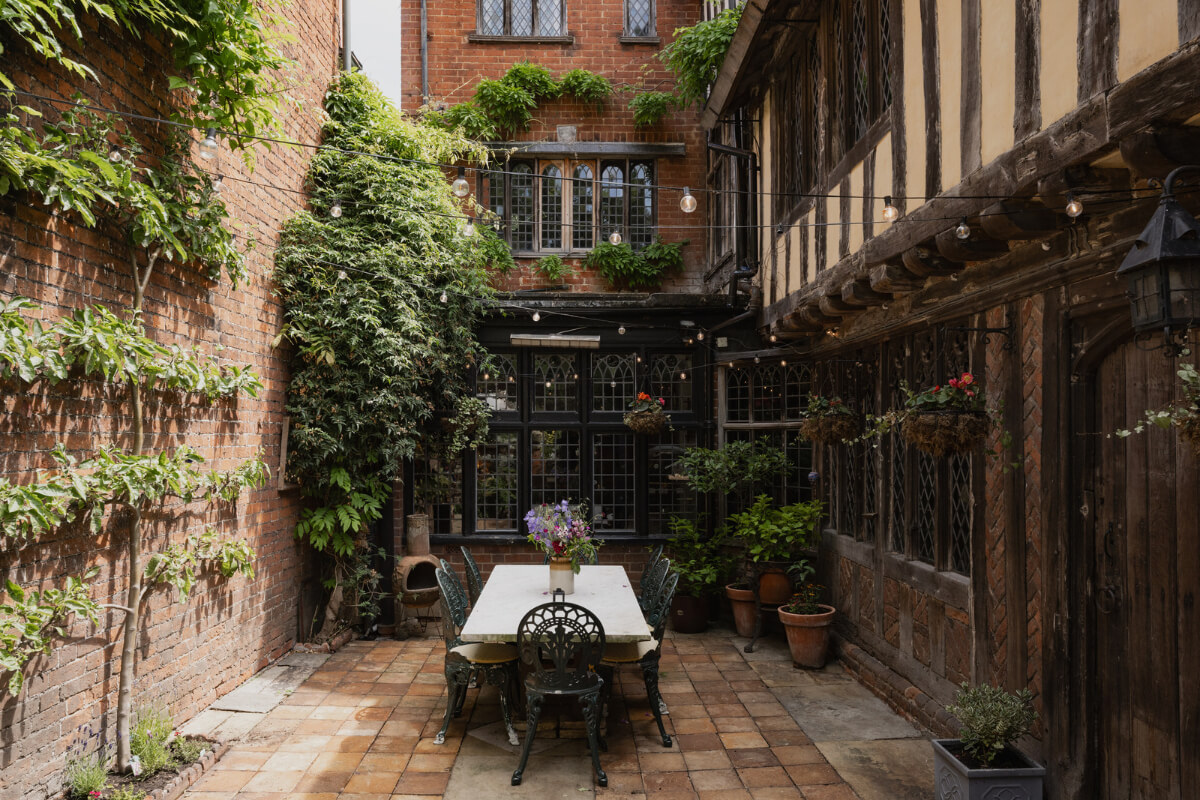
The oldest parts of the house are believed to date back to around 1420. Clues like the way the timber frame was constructed, using a spoon auger to drill holes, and the broadside placement of the first-floor ceiling beams support the local stories of its late medieval origins.
This section forms the heart of the home, featuring a jettied upper floor and walls made from timber posts with panels of haired chalk, lath, and brick infill.
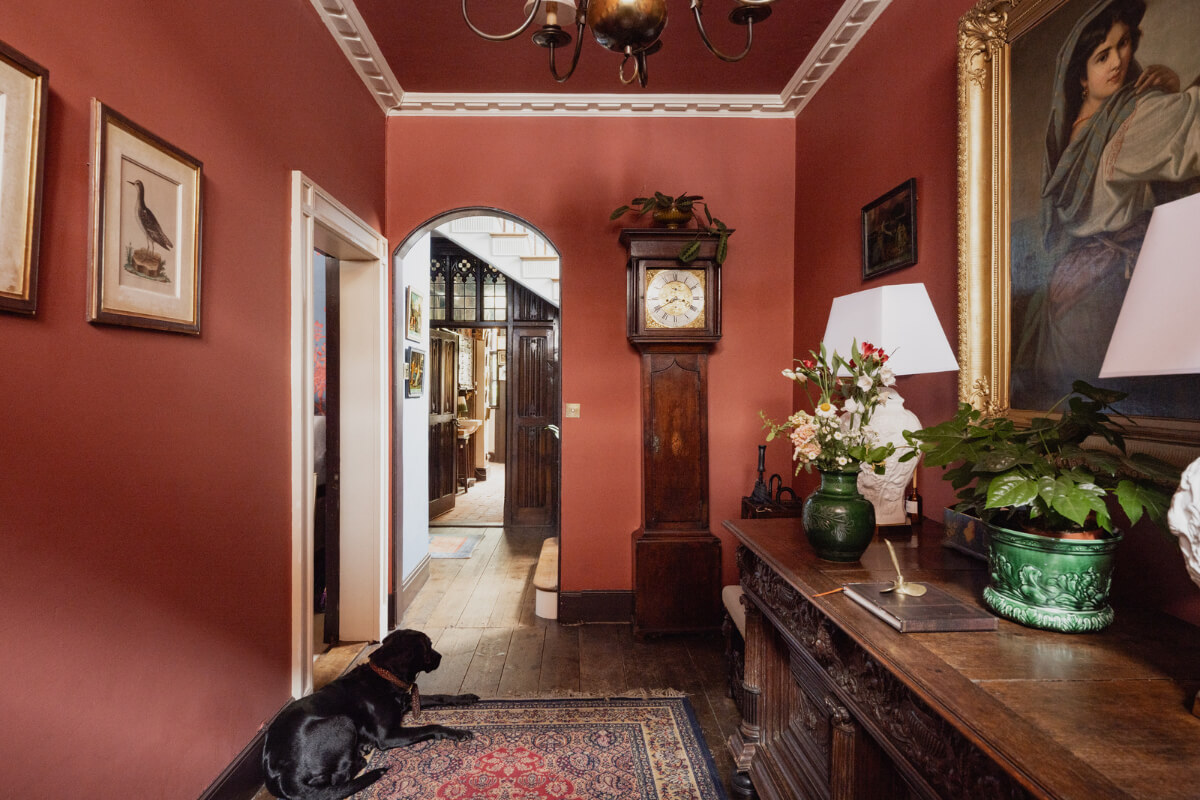
In the mid-18th century, the house was refronted with a Georgian facade, including tuckpointed red brick, stucco banding, sash windows, and a six-panel front door.
In recent years, the house has been meticulously restored, preserving the historic character and showcasing the historic architectural bones beautifully.
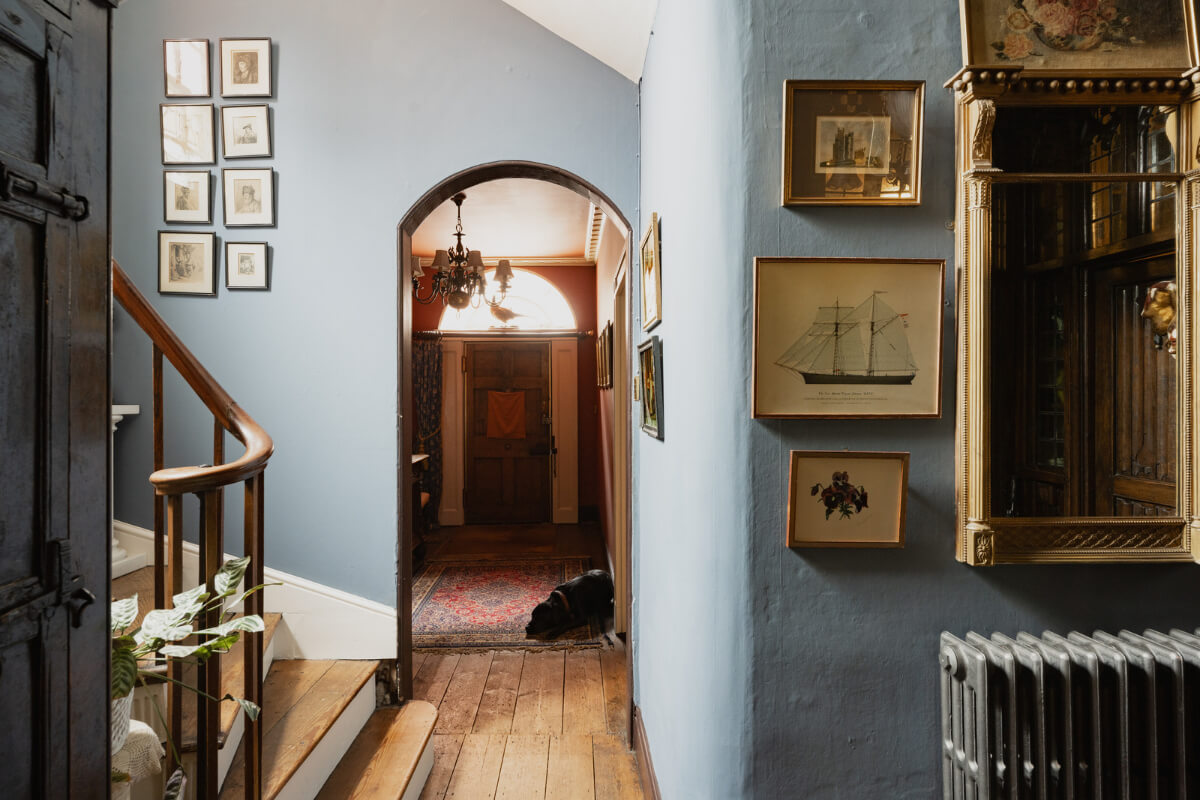
You enter the home in a two-part hall. The entry hall is painted in ‘Picture Gallery Red’ and ‘Joa’s White’ by Farrow & Ball. The inner hall, with the staircase, is painted in ‘Blue Blood’ by Paint and Paper Library. Original waxed pine floorboards lie underfoot.
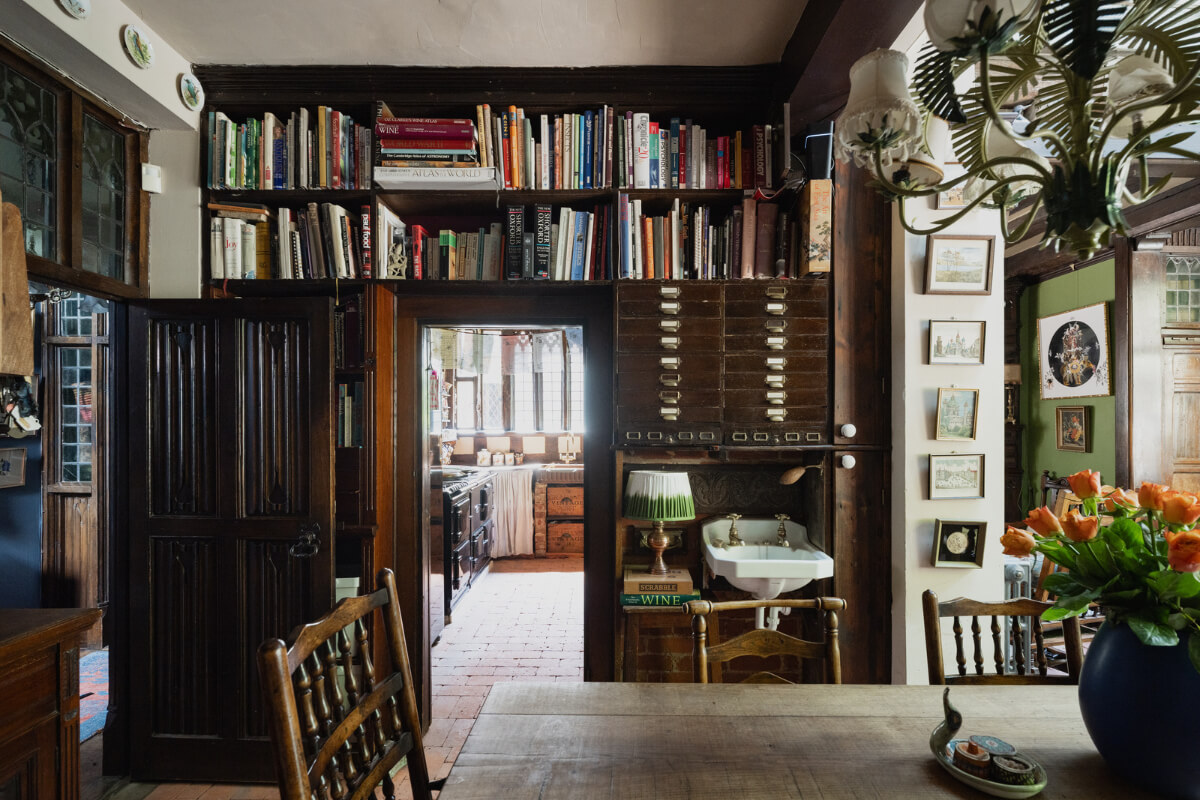
A four-panelled door with linen fold carving opens to the kitchen and breakfast room in the medieval part of the house. The rooms have a semi-open floor plan with Red Suffolk bricks and flagstones on the floor, which have been recovered from the garden.

The breakfast room features a butler sink paired with blue and white tiles with floral patterns.


The kitchen features reclaimed mahogany cabinets and a 17th-century oak mule chest that is used as the kitchen island.

The fluted stone sink sits underneath the timber-mullioned and leaded window with tracery topped with pargeting depicting a grapevine.

A cozy nook in the kitchen features a stone fireplace with an oak surround carved with insignia, vine leaves, and linen fold motifs.
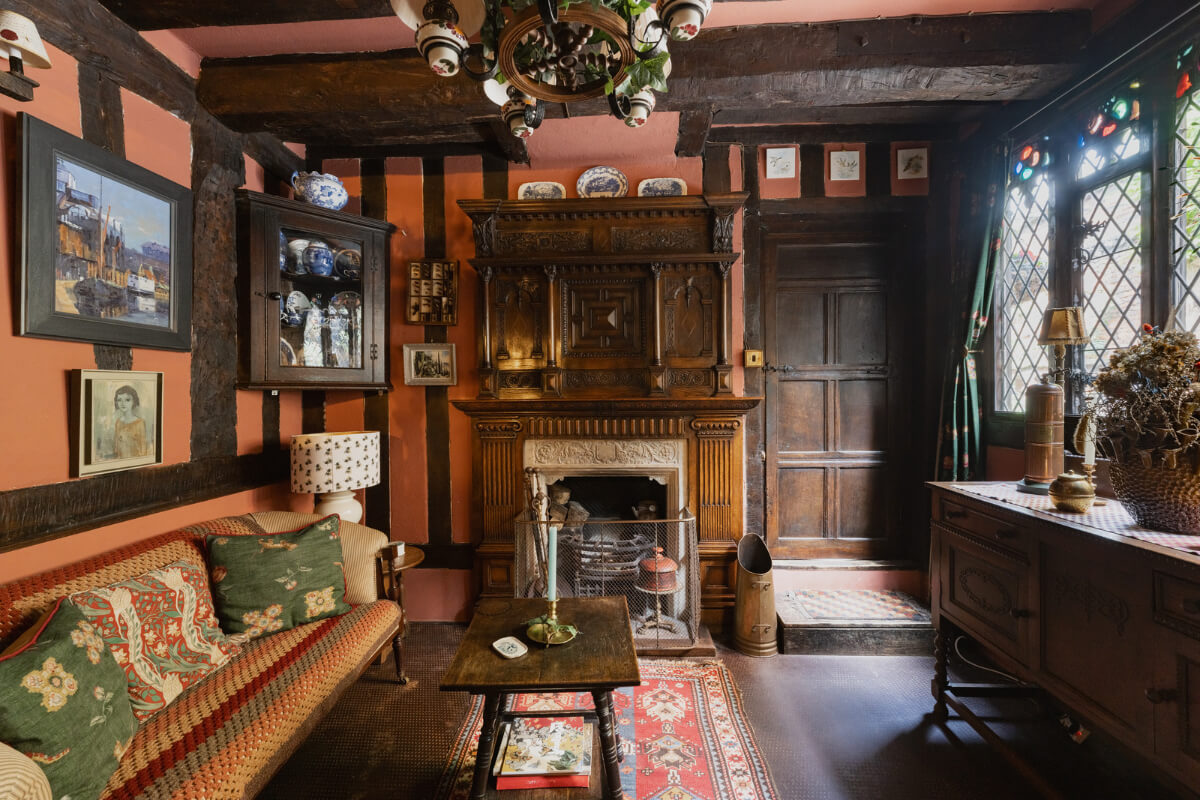
The snug on the ground floor is partially paneled in oak and features a large fireplace and terracotta pink walls.

To the front of the house lies a formal dining room with six-over-six sash windows with the original embrasure shutters. The room features a pine Adam-style fireplace and deep blue and crimson hand-painted, embroidered silk wallpaper from Fromental.


A staircase with a mahogany handrail leads you to the first floor.
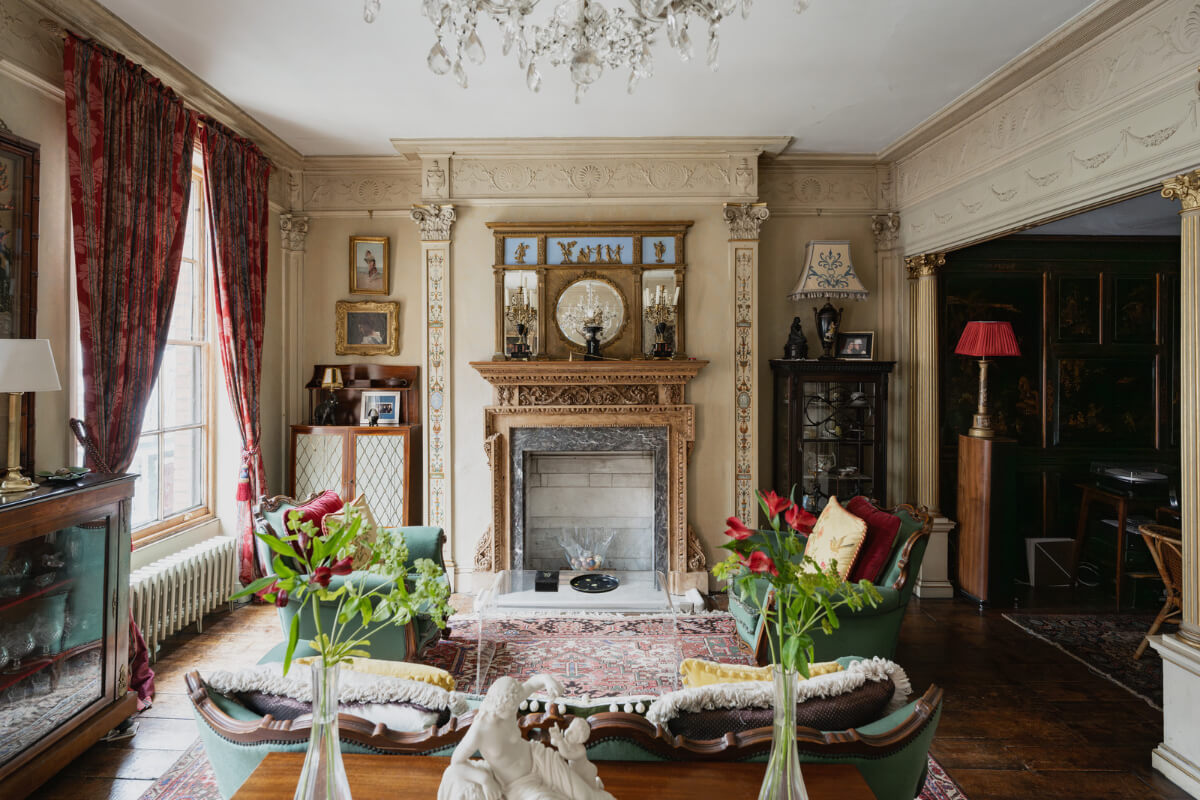

At the front of the house, spanning the entire width, lies the formal sitting room featuring frescoed pillars and a carved mantelpiece (rumored to be designed by Adams) with Carrara marble.



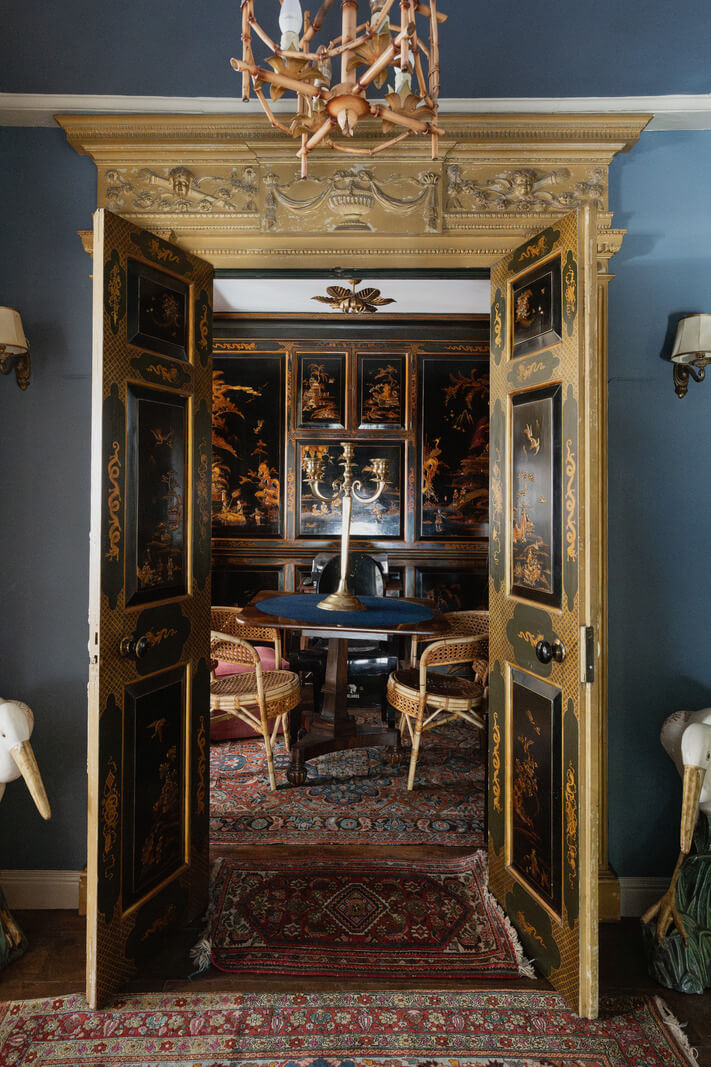
The formal sitting room and the first-floor landing also open to a music room with Japanned panelling and a clerestory window.

The first floor houses three bedrooms and two bedrooms. The rooms in the medieval part feature beautiful timber frames, carved panelling, mullioned windows, and wide oak floorboards.
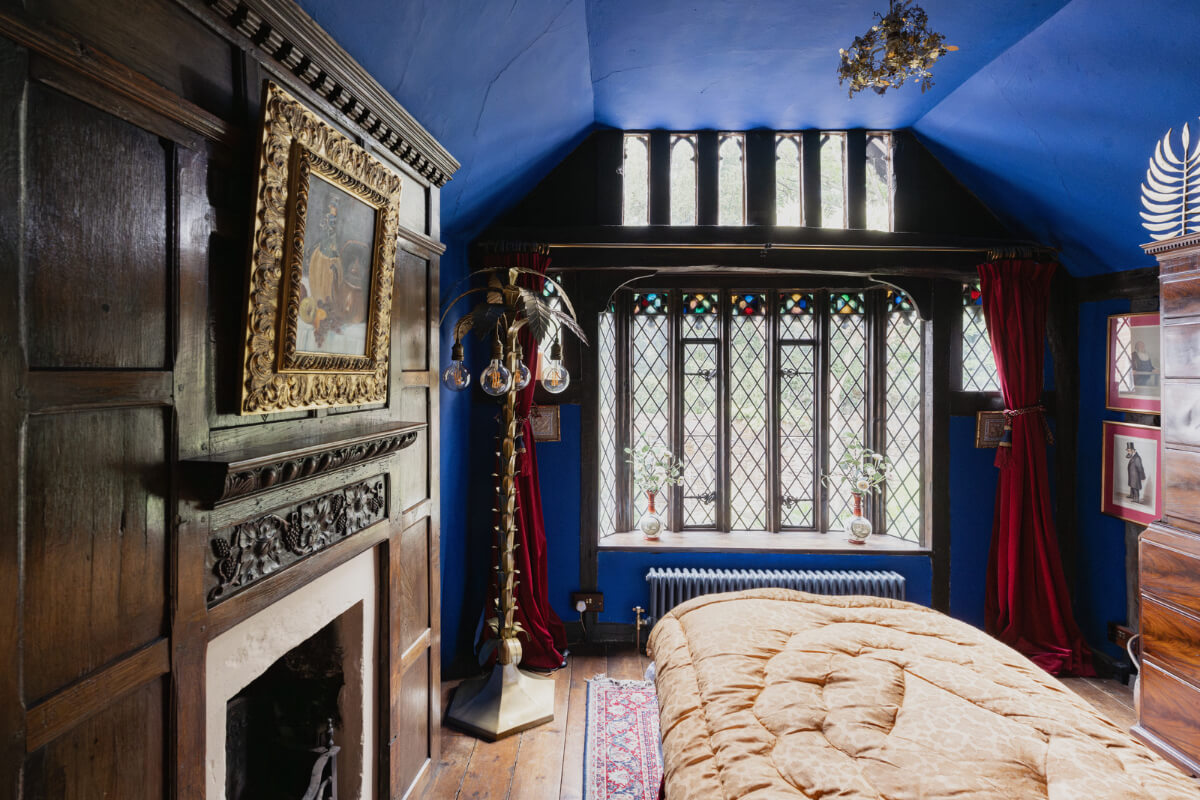
The room at the back of the house features an oriel window overlooking the garden. The room is painted in ‘Smalt’ by Little Greene to match the stained glass in the window.
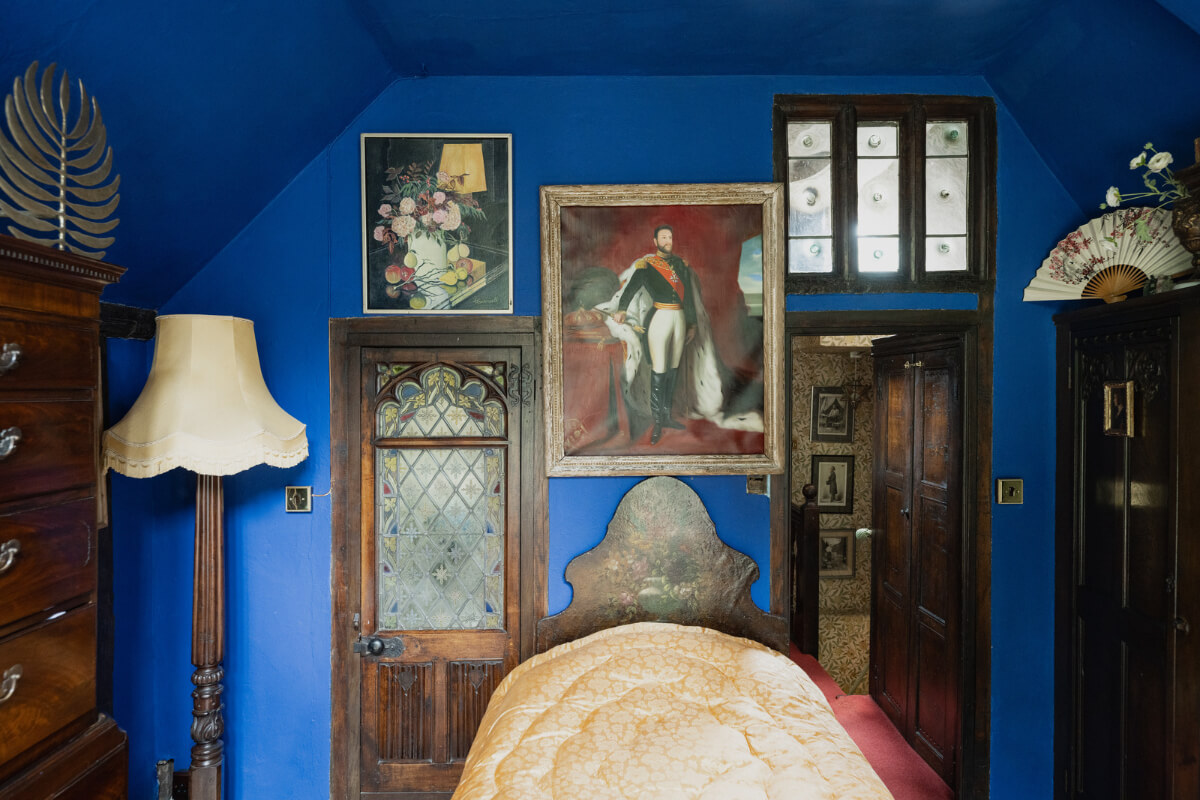
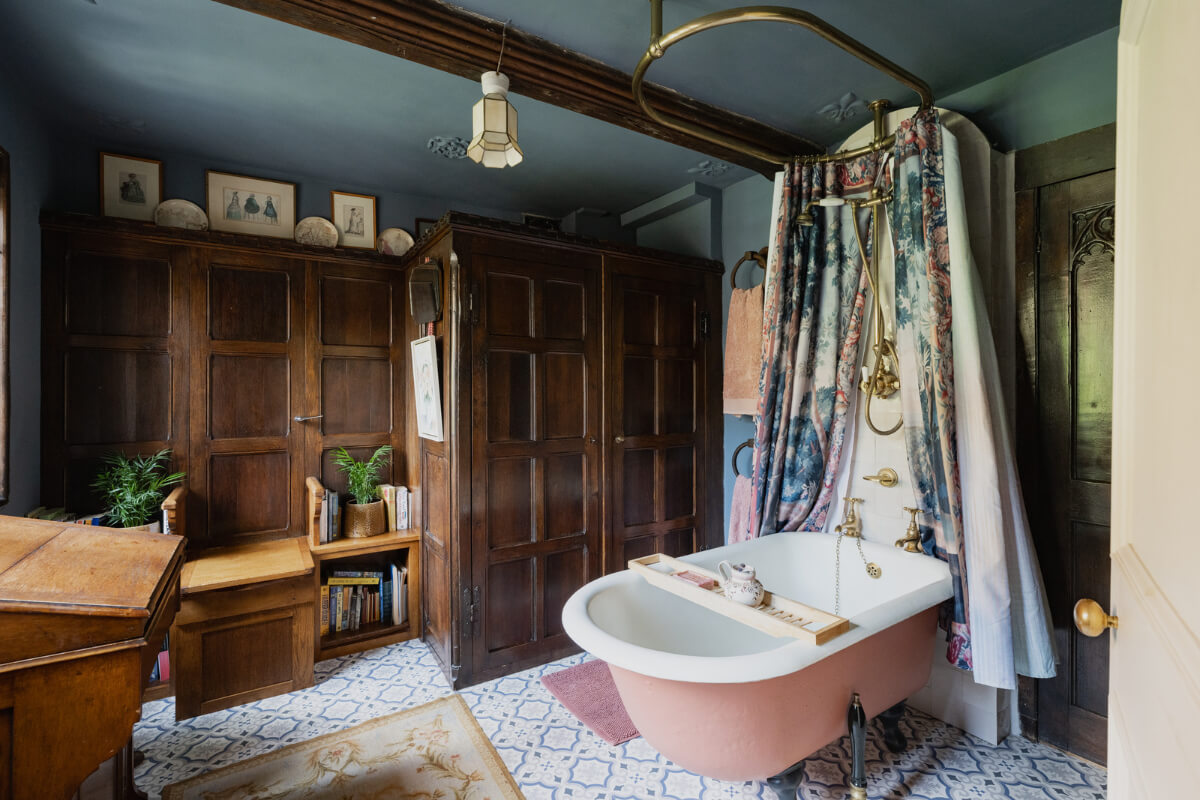
The largest bathroom on this floor features a light pink rolltop bath, Moroccan-style floor tiles, and a unique historic wash basin.




The primary bathroom on the top floor has a unique barrel-vaulted ceiling painted in a bright green shade matching the frame-stretched cotton damask covering parts of the walls.


The bathroom on this floor is painted in a terracotta pink shade and features a wooden built-in bath under the window.



The house features a charming walled garden. The courtyard terrace is paved with flagstones and mottled Suffolk pamment tiles. Beyond this, there is a garden with raised herbaceous borders, climbing flowers, and productive fruit trees.




The house is listed for £800,000 at Inigo.
